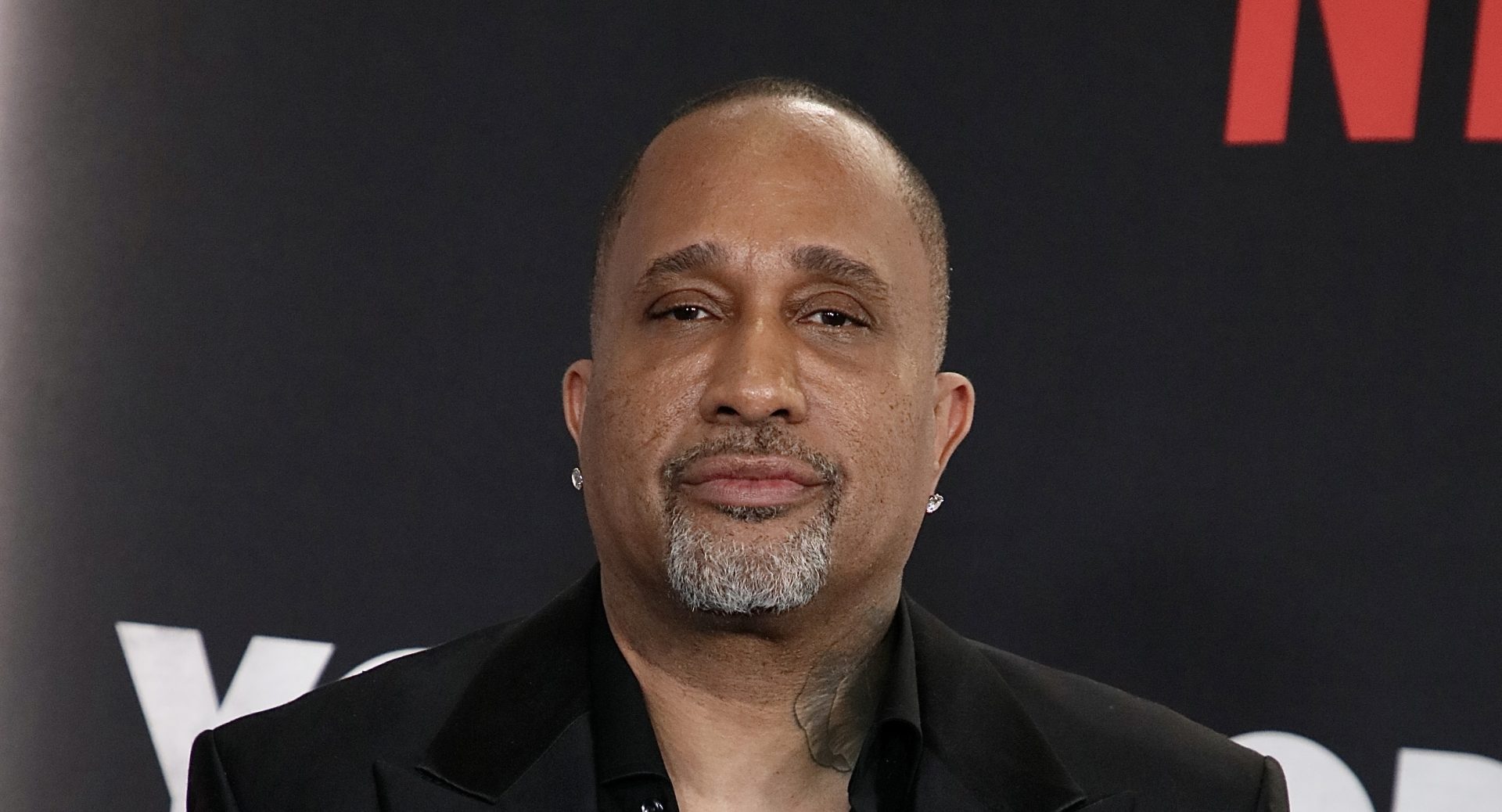
Photo: Robin L Marshall/WireImage/Getty Images
You People director Kenya Barris is acknowledging the continual critiques about his work, and he’s standing ten toes down when it comes to his creative decisions!
During a recent sit-down with Rolling Stone, Kenya faced some questions regarding the internet buzz surrounding him and his work. For context, Kenya faces a fair amount of backlash over his so-called “biracial obsession,” as The Shade Room previously reported.
In response to being “criticized by audiences for perpetuating colorism,” Barris declared that his contributions are on the same level as “anybody who’s had a Blacker body of work.”
“I think that people need to have something to say. I think that the bigger thing is: if you look at my body of work, I challenge anybody who’s had a Blacker body of work than me.”
He also noted that his own family experiences play into how he conceptualizes his projects, like Black-ish and Grown-ish. As such, his projects may be “based upon exactly that biraciality.”
“Black-ish, was based on literally my family. My wife is biracial. My kids look like the kids on Black-ish. And I was trying to make a story about my family. #BlackAF, again, was based upon my family so what I was doing was based upon the experience that I knew and the things that came along with that. Mixed-ish is based upon exactly that biraciality.”
Barris went on to add, “I think most of the people who’ve studied the American landscape will say that some sort of mixed-race look will be in in the next 30-40 years.”
Another point Kenya made was that his successes have “opened up a lot of doors for a lot of people to tell their own versions of stories.” After all, “the only color in Hollywood that really matters is green.”
“Most of the things I’ve done have been commercially successful in a way that, unfortunately, you know, our projects haven’t been able to be. And I think it’s opened up a lot of doors for a lot of other people to tell their versions of stories.”
With that being said, though, Kenya did point out that he’s fond of some of the jokes about him and his work. Additionally, he noted that—at the end of the day—he’s committed to “promot[ing] Black culture in every form.”
“I feel like I’ve heard the some of my favorite jokes, you know: you say biracial in the mirror three times, Kenya Barris appears. Drake’s baby looks like Kenya Barris produced it. Like, I get it. I get the jokes. But I also feel like if you look at my body of work, everything I’ve done has been to try and promote Black culture in every form and to show that we’re not monolithic and there’s so many versions of us.”
Regarding the backlash Kenya Barris commonly faces, he acknowledged that the Black community appears to “pick and choose” when to get caught up on someone’s biracial identity. He specifically noted an online conversation surrounding #BlackAF star Rashida Jones and Barack Obama as an example.
“Someone said, ‘Rashida Jones isn’t a real Black woman.’ And someone on Twitter then said, ‘Rashida Jones is exactly like Barack Obama and he’s our king.’ And I feel like that was a really interesting thing to look at.”
Barris continued, taking his argument back to the Civil Rights Movement.
“I feel like we pick and choose when to say, this is what it is and this is what’s not. If you look at some of the biggest figures in the Civil Rights Movement they were biracial, and at that moment we weren’t looking at how someone was lighter or this or that. We just needed numbers and we needed us all to come together.”
What do you think about Kenya Barris’ commentary, as well as the backlash around him?